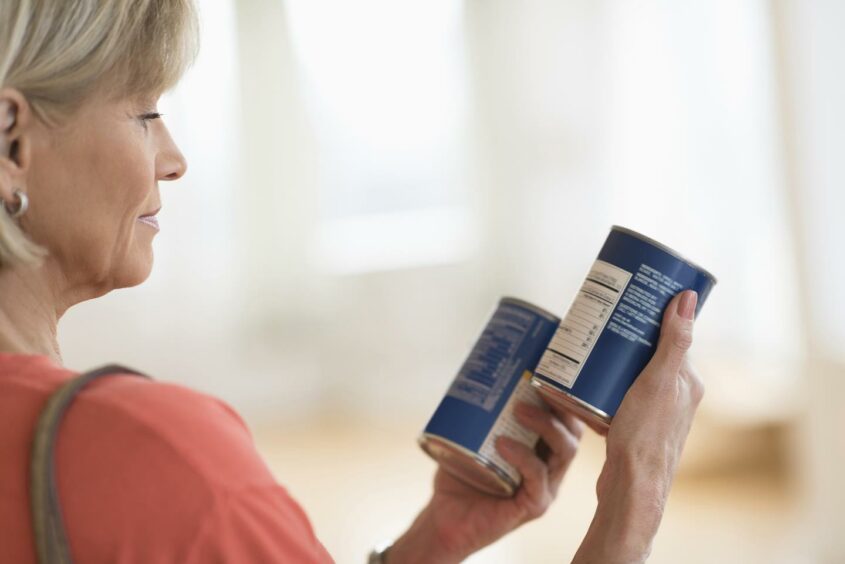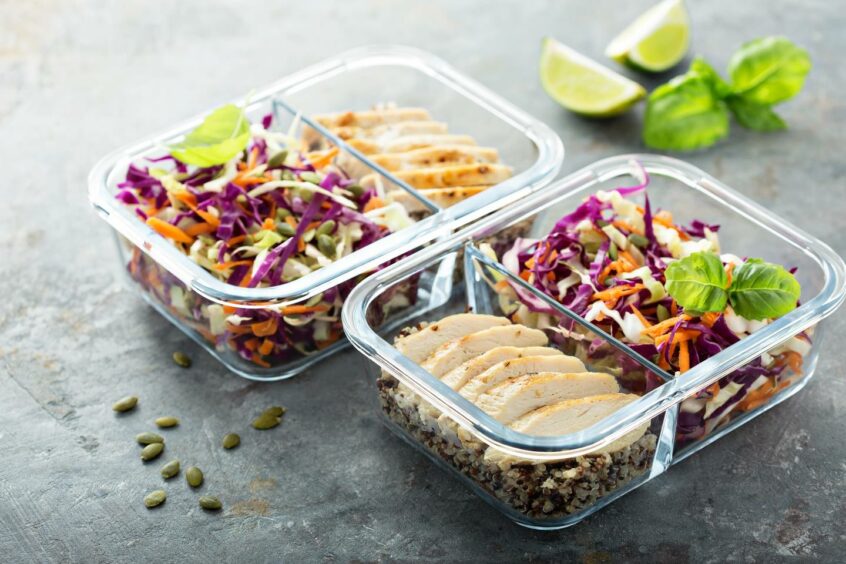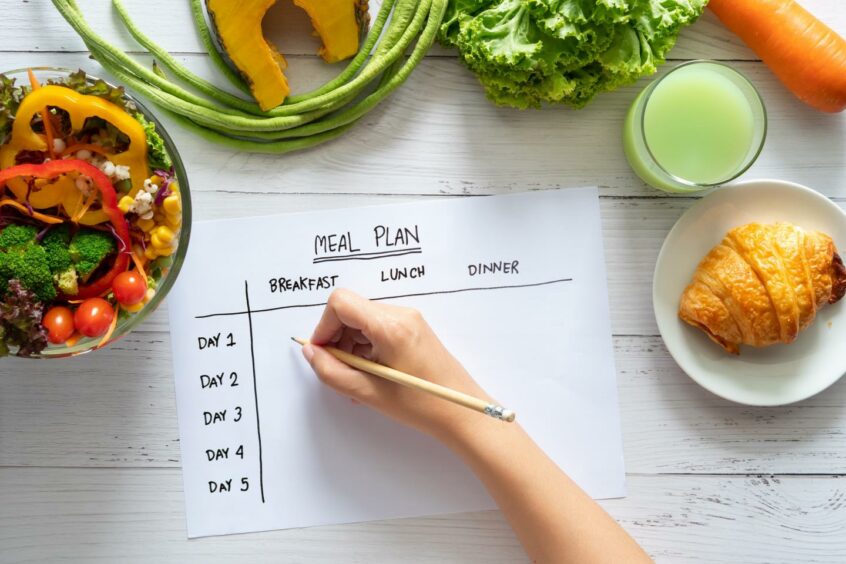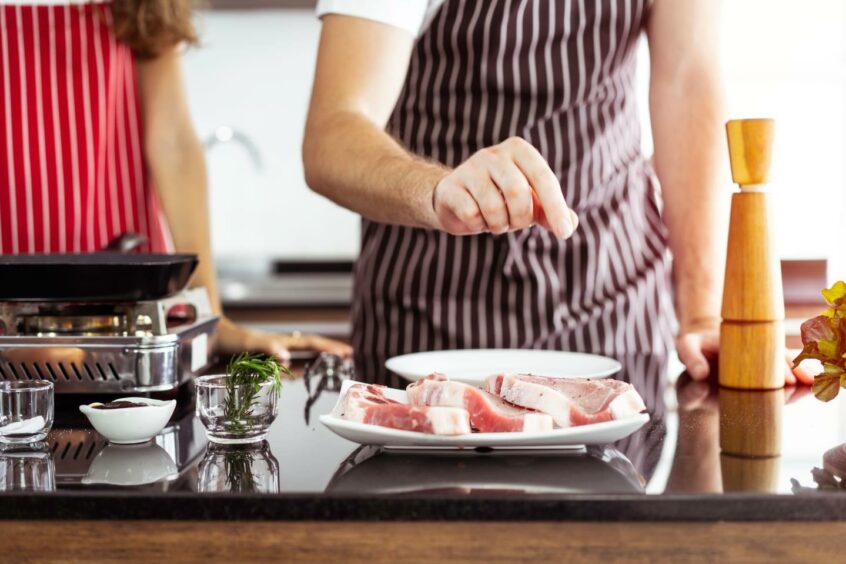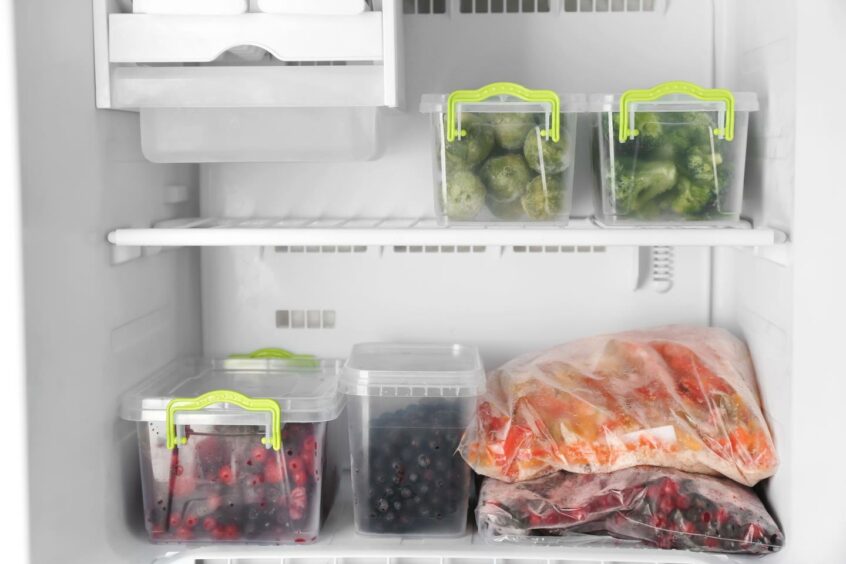We all strive to be able to eat better while spending less and wasting less food, but it often seems a lot harder to master than it is, especially if you have a family of hungry mouths to feed.
The team at Greener Kirkcaldy, which teaches people to live more sustainably and produce less waste through classes, initiatives, schemes, learning and community-led projects, have come up with some solutions.
Community chef Iain McLellan and development worker Jackie Arreaza are often teaching people how to cook and reduce their food waste, so that they are relying less on takeaways and ready meals.
With this in mind, Iain and Jackie have shared the following tips to help you do this at home.
Understand the dates on your labels
Learning the difference between ‘best before’ and ‘use by’ is an important skill to have, says Jackie, and could save you a lot of money each year.
“One thing that’s important to do is understand the dates on your labels,” says Jackie. “There was someone in one of my classes who didn’t understand that a ‘best before’ was a different date than a ‘use by’.
“She was throwing away things just because she read the date and it said best before. Now that she knows the difference, I think that’s probably saved her about £1oo a year at least.
“Going past a best before date is usually ok. It might taste slightly different after a year, of course, but a few days is fine.
“For a use by, I wouldn’t recommend anyone using it. Getting a sense of whether food is edible or not is also part of this, whether it’s by smell or taste or texture. Don’t just randomly throw something out because it’s past the best before.”
Batch cooking and portioning food correctly
Cooking meals in batches and then portioning them out before freezing is also another way to reduce food wastage.
Iain says: “Batch cooking can help too but also portioning your food properly is important.
“When you do get to the point where you’ve made a lasagne, for example, make sure the size of your portions are correct because once you’ve frozen it then defrosted it, if you’ve made too big a portion you’re still not going to be able to eat it.”
Planning meals ahead for the week
Before embarking on a trip to the supermarket, the duo recommend planning your meals ahead and trying not to stray from your list. It also means that people are a lot less likely to rely on takeaways throughout the week.
“We would always recommend that people have a bit of a plan and think ahead for the week,” continues Jackie.
“They might not have every single meal for the next seven days planned out but the more you think ahead, the better your plan, the more you stick to your shopping list then you’re going to end up saving money.
“It’s amazing how much you spend on takeaways and, once you learn the basics of cooking, the treats start to become something that’s homemade.
“It could be a homemade pizza or a homemade curry, for example.”
“Another idea is to get the kids involved – whether it’s with something like pizza dough or doing their own toppings. Kids love decorating their pizzas and you can give them healthy things like sweetcorn or peppers to make faces and pepperoni for eyes.”
Practice makes perfect when it comes to cooking
Cooking from scratch may seem daunting at first, particularly if you’ve never done much of it before. But once you’ve practiced, you can whip up a delicious and nutritious meal in no time, says Iain.
“Some basic cooking skills can go a long way to eating better,” he adds. “I always try to stress to people in classes that they’re not going to be able to cook very easily the first time they do it, but every time they do it it becomes easier.
“You might struggle to make all your food for yourself in one week initially but give yourself a bit of time or try starting out by doing half a week and building up from there, and it will become easier.
“Every time you do something you’ll get faster and more efficient. The results will also be better and it will encourage you to do more.”
Cooking food from scratch doesn’t just save money, it also has its health benefits.
Jackie continues: “Another barrier is getting people to realise that if you’re making it yourself then you’re going to know what’s in the meal.
“Whether you’re making bread or soup – with tinned soup, for instance, you’re eating a lot of sugar, salt and a whole bunch of different things.
“It’s not just saving money, but there are a lot of health benefits that come with making meals yourself.”
Learn how to defrost and store food
Defrosting and storing food incorrectly is another major factor when it comes to creating waste. But the team reckon they have some ideas as to how we can prevent this at home.
“If you have some fresh chicken and it’s getting close to its date, if you actually freeze it, then defrost it, then cook it, you can freeze the cooked chicken, which will make it last longer,” says Iain.
“Even having things in proper containers helps. Smaller containers are always better as well as keeping your fridge organised.”
Jackie adds: “Just making sure that the fridge is cold enough as well is important.
“I’ve been talking to some people who think they’ve got their fridge on the highest setting when actually it’s the lowest. And their food obviously goes off very quickly.
“Even where you put things in your fridge will help make your food last longer, such as keeping all the raw stuff at the bottom and ensuring raw meat doesn’t come into contact with anything else, including cooked meat.”
Have a ‘leftovers day’
If you find yourself with some leftovers at the end of the day, research what you can make with them and turn it into that evening’s dinner, says the team.
“In our house we have a leftover Thursday,” says Jackie. “So whatever is at the bottom of the veg drawer on a Thursday we just decide to make something with it.
“It’s quite often an omelette or a stir fry, but the veg is being used.
“There should be no excuse to throw food away”.
Iain adds: “If you buy a whole chicken and cook it, the different parts of that chicken can be used in various meals throughout the week.”

